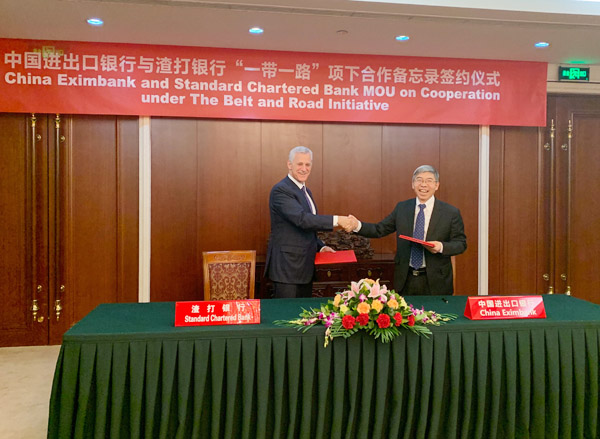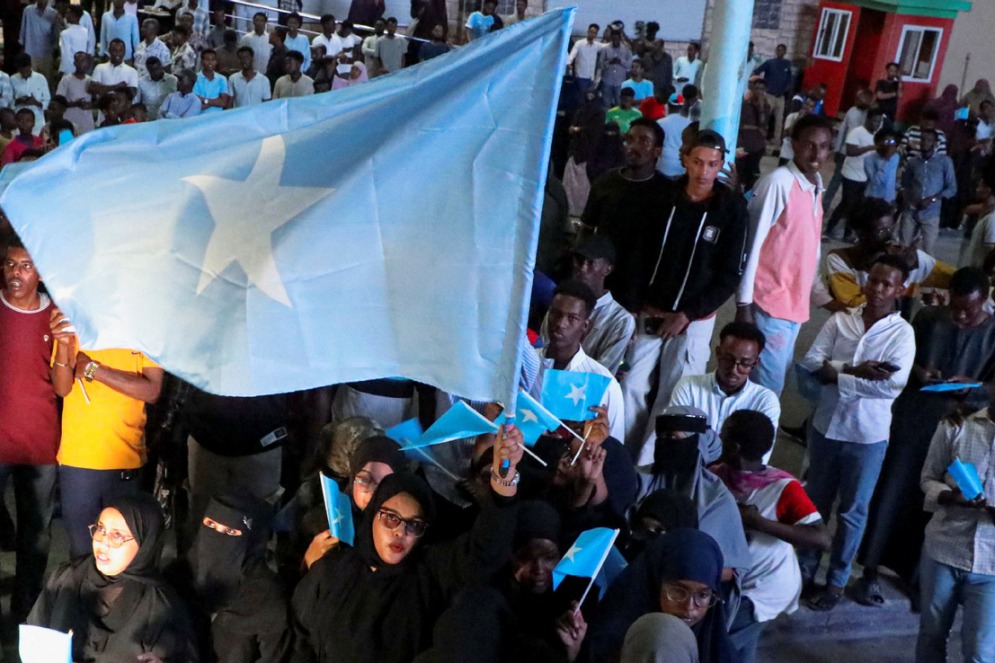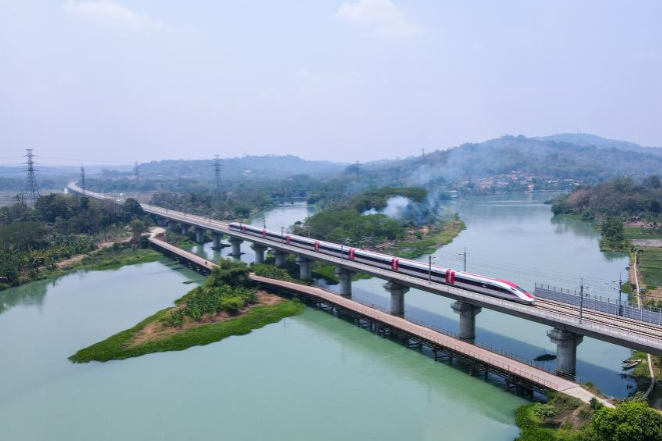Export-Import Bank of China and Standard Chartered Sign MoU to promote high quality development of Belt & Road projects



The Export-Import Bank of China and Standard Chartered Bank signed a memorandum of understanding on Thursday on cooperation under the Belt & Road Initiative (BRI) in Beijing, and established BRI strategic cooperation relationship. The memorandum was signed by Zhang Qingsong, President of the Export-Import Bank of China and Bill Winters, Group CEO of Standard Chartered Bank.
It requires multi-sources of funding and professional collaboration to promote the high-quality development of the Belt & Road projects. The Export-Import Bank of China and Standard Chartered Bank will give full play to their respective advantages, enhance information communication and knowledge exchange, to jointly provide financial support and services for the Belt & Road projects through syndicated loans, financial markets, trade finance and so on.
The Export-Import Bank of China's main mandate is to facilitate national development strategies, and build a policy bank which has clear-cut market positioning, well-defined business portfolio, unique functions, sufficient capital, good governance, strict internal control, safe operation, high quality service and sustainable development capability. The Belt & Road construction is one of its main areas of support. The Export-Import Bank of China has supported more than 1,800 projects along the Belt & Road countries with more than CNY1 trillion loan balance amount, involving key areas such as facility connectivity, economic and trade cooperation, industrial investment and energy resource cooperation.
Standard Chartered Bank has business outlets in 45 Belt & Road markets, and has operated in 26 of them for more than 100 years. The bank has deep understanding of the political, economic, legal, regulatory and cultural environment along the routes. In 2018, Standard Chartered Bank was involved in nearly 100 Belt & Road projects, total size of which exceeded $20 billion. More than 50% of these projects relate to transport infrastructure covering mostly African and South Asian countries. This is followed by projects in the energy and water/waste treatment sector. These projects adhere to high standards of environmental and social governance, and will improve the quality of local people's life.

































